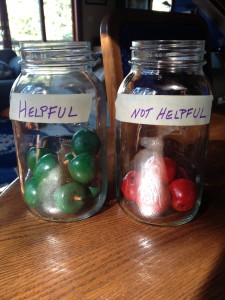From the moment we learn a baby is coming we begin a life-long journey to understand this new person. At first it’s a clear-cut mission. I am key to my child’s survival. I must understand what the child needs and provide it. Sure there may have been lovers who proclaimed, “You are my life.” “I’d be lost without.” “I would die without you.” That is fantasy. But our baby’s need for us doesn’t get any realer. Without our love and protection… the child would die.
As kids grow they learn to take care of their own physical needs. Feeding. Toileting. Bathing. And they learn to decode the world by exploring its textures, tastes and sounds.
How about learning to take care of their emotional needs? Little children have big emotions. Tweens and teens often experience off-the-chart emotions. We parents need to hang in there, continually trying to understand what’s going on. We often do it by asking:
How do you feel?
What scared you?
Why are you crying?
This line of questioning helps kids tune in to their emotions and learn about what sets them off.
She was mean to me!
He hurt my feelings!
These conversations are important and helpful, but that’s not the end of the story. If we make it the end kids can get stuck believing: My feelings are most important of all. That mindset just isn’t very helpful for raising kind, respectful and socially courageous kids who do the right thing, online and off.
After your children have talked about their emotions and had a chance to calm down, it’s time for the rest of the story. Ask: “What can you do about this situation? What would be helpful? What would not be helpful?”
Encourage your children to explore their options, aka their next best move because, even though our feelings matter, ultimately, our behavior matters more.
So… how do you feel about that perspective? What do you think about? And what are you going to do with it?
I look forward to hearing from you.















